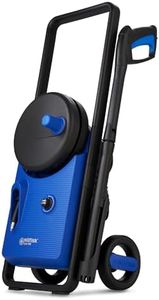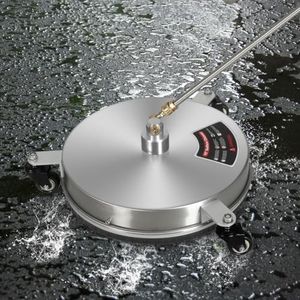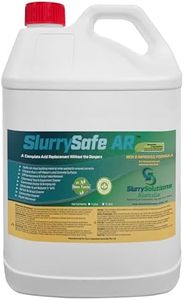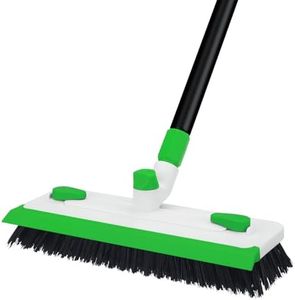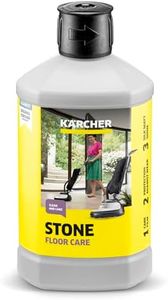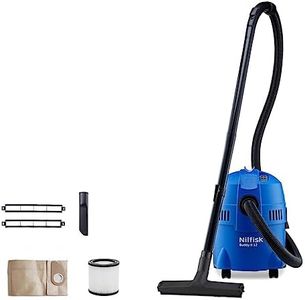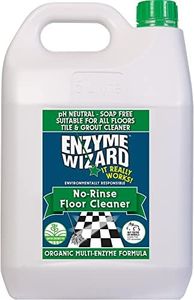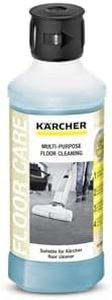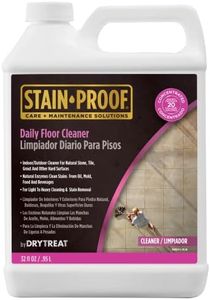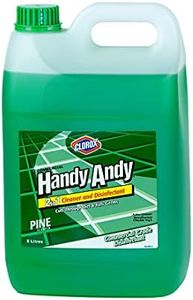We Use CookiesWe use cookies to enhance the security, performance,
functionality and for analytical and promotional activities. By continuing to browse this site you
are agreeing to our privacy policy
10 Best Concrete Floor Cleaners
From leading brands and best sellers available on the web.By clicking on a link to a third party's website, log data is shared with that third party.
Buying Guide for the Best Concrete Floor Cleaners
Choosing the right concrete floor cleaner is crucial for keeping your floors looking fresh, safe, and long-lasting. Whether you’re cleaning a garage, a warehouse, or even your basement, using the right cleaner can help you remove stains, dirt, dust, and grime without damaging the concrete surface. To find the best fit for your needs, it’s important to understand the key specifications that make up a cleaner's performance and suitability for your application.Type of CleanerConcrete floor cleaners come in several types: chemical, enzymatic, and natural. This specification refers to what ingredients or cleaning agents make up the product. Chemical cleaners are powerful against tough stains like oil or grease, making them ideal for garages or industrial settings. Enzymatic and natural cleaners tend to be more eco-friendly and are suitable for lighter cleaning or for areas where pets and children play. Choose the type based on the kind of stains and environment you'll be dealing with: tougher grime may need a stronger chemical solution, while routine maintenance or sensitive environments benefit from gentler, natural options.
Formulation (Concentrate vs Ready-to-Use)Cleaners come either as a concentrate you must dilute or as ready-to-use formulas that require no mixing. Concentrates offer more value per use and are adjustable based on how dirty your floor is, but they need careful mixing to avoid damaging the floor. Ready-to-use solutions are convenient for quick or occasional cleaning but can be more expensive over time. Pick a concentrate if you have frequent, large, or heavy-duty cleaning with the willingness to measure and mix; go for ready-to-use for smaller, quick jobs or ease of application.
Surface CompatibilityNot every cleaning product is good for all types of concrete—sealed/coated, polished, or unsealed surfaces may react differently to various ingredients. This specification tells you whether the cleaner is safe for use on your particular floor finish. Cleaners for sealed or coated floors typically avoid harsh chemicals that may strip the finish, while unsealed surfaces can handle more aggressive cleaning. Know your floor type and check product labels to match compatibility; using the wrong cleaner can dull, discolor, or even damage your floor.
Stain Removal CapabilitiesDifferent cleaners are formulated to tackle specific kinds of stains such as oil, grease, rust, or mildew. This spec shows what kind of cleaning power the product offers. Some are strong degreasers for automotive messes, while others focus on either organic stains or residue from water and mold. Think about the most common stains in your environment when making your choice—garage users may want degreasers, whereas basements or patios prone to mildew require cleaners specializing in organic stains.
Application MethodThis refers to how the cleaner is applied: spray, mop, scrubber, or pressure washer compatible. Some cleaners need to be sprayed on and left to soak, others are designed for use with mechanical equipment. Manual application is good for spot or light cleaning, but machine-compatible solutions work best for large or heavily soiled areas. Consider what tools you have available and the size of your cleaning task to pick an application method that makes the process easier and more efficient for you.
Scent and ResidueThe scent and whether a cleaner leaves residue behind are both comfort and maintenance factors. Some cleaners have strong scents that can linger, while others are fragrance-free for sensitive users. Residue may attract dirt faster or require rinsing after cleaning. If you’re sensitive to smells or want a low-maintenance solution, look for low-odor, no-residue products. This is especially important in indoor or poorly ventilated spaces.

